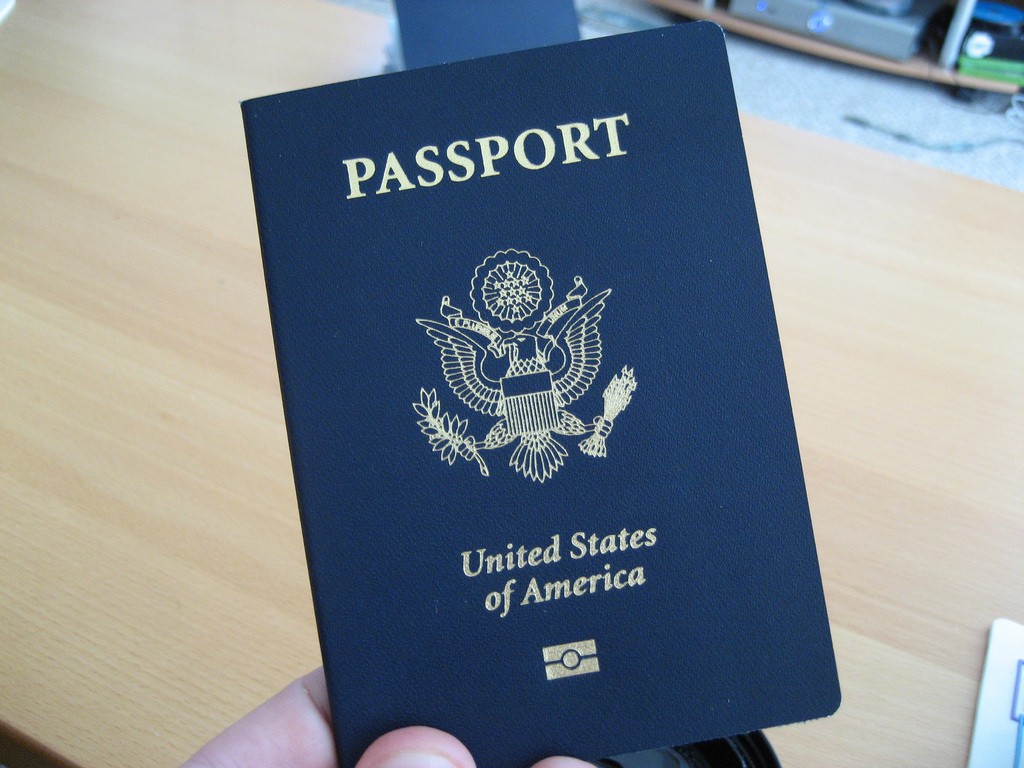By Amy SuskiThinking of traveling to Canada, Mexico, Caribbean, or Europe later this year? Traveling by car or cruise ship and not sure whether everyone in the family needs a passport? Now is the perfect time to do your research and get your family's travel documents in order. Passport agencies aren’t as busy as they’ll be in the spring and summer and since the regular process can take 4-6 weeks, it makes sense to take care of the paperwork now. You should also be aware that many countries require passports to be valid for at least 6 months after the date you begin your visit, so even if your passport is valid for another few months at the time of your trip it may not be enough. In addition to a valid passport, depending on where you are visiting, you may also need a visa. And if you are traveling with children, special rules may apply. Seem like a lot to sort out? It is! We recently booked a non-refundable ski trip to Canada and then panicked when we realized all of our passports were out of date. After some research we learned that the kids could travel to and from Canada with certified copies of their birth certificates, but I needed an expedited renewal of my passport (which we were able to obtain within 2-3 weeks by paying an extra fee). Learn from my mistake and ALWAYS check with the Department of State and the foreign country you plan to visit well in advance of your trip. Requirements can change and you don't want a missing document to ruin your big trip! To get you started, here are some general guidelines. Traveling by Air, Land or Sea? All people travelling by air, regardless of age, must have their own passport when travelling internationally by air. If travelling by land from Canada or Mexico, adults must have a passport book or passport card to re-enter the U.S. U.S. citizen children under the age of 16 must have a passport, original or certified copy of their birth certificate, Consular Report of Birth Abroad, or Certificate of Citizenship to re-enter the U.S. U.S. adult citizens boarding a “closed-loop” cruise at a U.S. port that is travelling only within the Western Hemisphere may present a government issued photo ID, along with proof of citizenship (an original or certified copy of your birth certificate, a Consular report of Birth Abroad, or a Certificate of Naturalization) when returning to the same port on the same ship. U.S. citizen children under the age of 16 arriving by sea from Canada, Mexico, Bermuda, or the Caribbean must have a passport, original or certified copy of their birth certificate, Consular Report of Birth Abroad, or Certificate of Citizenship. Please be aware, however, that certain foreign countries that your cruise ship visits may require passports and visas, so be sure to check with your cruise line to be sure you have the right documents. Children Traveling Without Both Parents If you are travelling internationally with children without their other parent, you’ll also need written and notarized permission from the absent parent. On two recent trips to Canada my husband and I drove in separate cars, dividing up our three kids between cars and on both trips we were required to show this documentation before crossing the border with our children. In addition, if you are travelling internationally with more than one infant and toddler, some airlines may not allow you to fly without the help of another adult. When my friend needed to travel internationally with her infant and toddler, to comply with airline rules she had to arrange nanny to accompany them on the flight. Visas In addition to passports, depending on your nationality some countries will also require you to have a visa. Last summer my french brother-in-law (who was travelling on a French passport) attempted to bring his 6 year old son (who was travelling on American passport) into Brazil to see the World Cup and was surprised to learn that his son's American passport also needed a visa (the French passport did not). Brazilian immigration detained them at the airport and threatened to send them back to France on the next plane. Fortunately French officials were able to intervene quickly to issue a French passport for my nephew and they were allowed into Brazil the next day. Otherwise, the trip would have been a disaster! Country-specific information about visas can be found at the Department of State's website: http://travel.state.gov/content/visas/english/general/americans-traveling-abroad.html. How to Apply for a Passport Passport forms and instructions are available online and at designated passport agencies and acceptance facilities (including, certain U.S. post office branches, libraries or other municipal offices). Although passport forms can can be filled out online, they cannot be submitted online. Renewal applications for adults can be mailed-in, but first-time applicants and child renewals must be made in person. Also, please be aware that applying for a U.S. passport office while outside the U.S. is a different process from applying for a U.S. passport while in the U.S. Each U.S. embassy and consulate has their own procedures for the process. The requirements for getting a passport for children are even more involved, so take your time going over the forms and double-check that you have all the required documentation. Both parents should be prepared to accompany the child to the passport office with the required forms and identification. Alternatively, if one parent is unable to appear in person, the absent parent can prepare a notarized Form DS-3053 in advance. For more information about applying for a passport for child under 16 see the Department of State's guidance at www.travel.state.gov/content/passports/english/passports/under-16.html. Application Fees The non-refundable fees for passport applications are $110 for adults and $80 for children. Applications by first-time applicants and children will incur an additional $25 execution fee. Expedited applications can be made for an additional $60. Additional fees for express shipping and extra pages may also apply. For a complete list of fees click here. This information is a starting point only for U.S. citizens currently living in the U.S. Different travel requirements apply to non-U.S. citizens or U.S. citizens living abroad. Always check with the U.S. Department of State and the country you are visiting for the most complete and up to date information on passport, visa, security, and medical issues that may affect your international travel plans.
2 Comments
12/3/2015 01:52:58 am
The validity of the passport is very important, because as you have mentioned, many countries don't accept passport if the expiry date is less than 6 months. I had an experience like that once. From that onwards, I renew my important documents months before expiry.
Reply
5/31/2022 12:40:42 pm
The validity of the passport is very important, because as you have mentioned, many countries don't accept passport if the expiry date is less than 6 months. I had an experience like that once. From that onwards, I renew my important documents months before expiry.///
Reply
Leave a Reply. |
Sponsored Ads
Our BookAbout The Blog
Kid Trips' blogs profile fun events and cool family-friendly venues. We focus on regional and national family travel articles. Blogs Via Email
RSS Feed
Archives
December 2020
Links We Love |






 RSS Feed
RSS Feed


